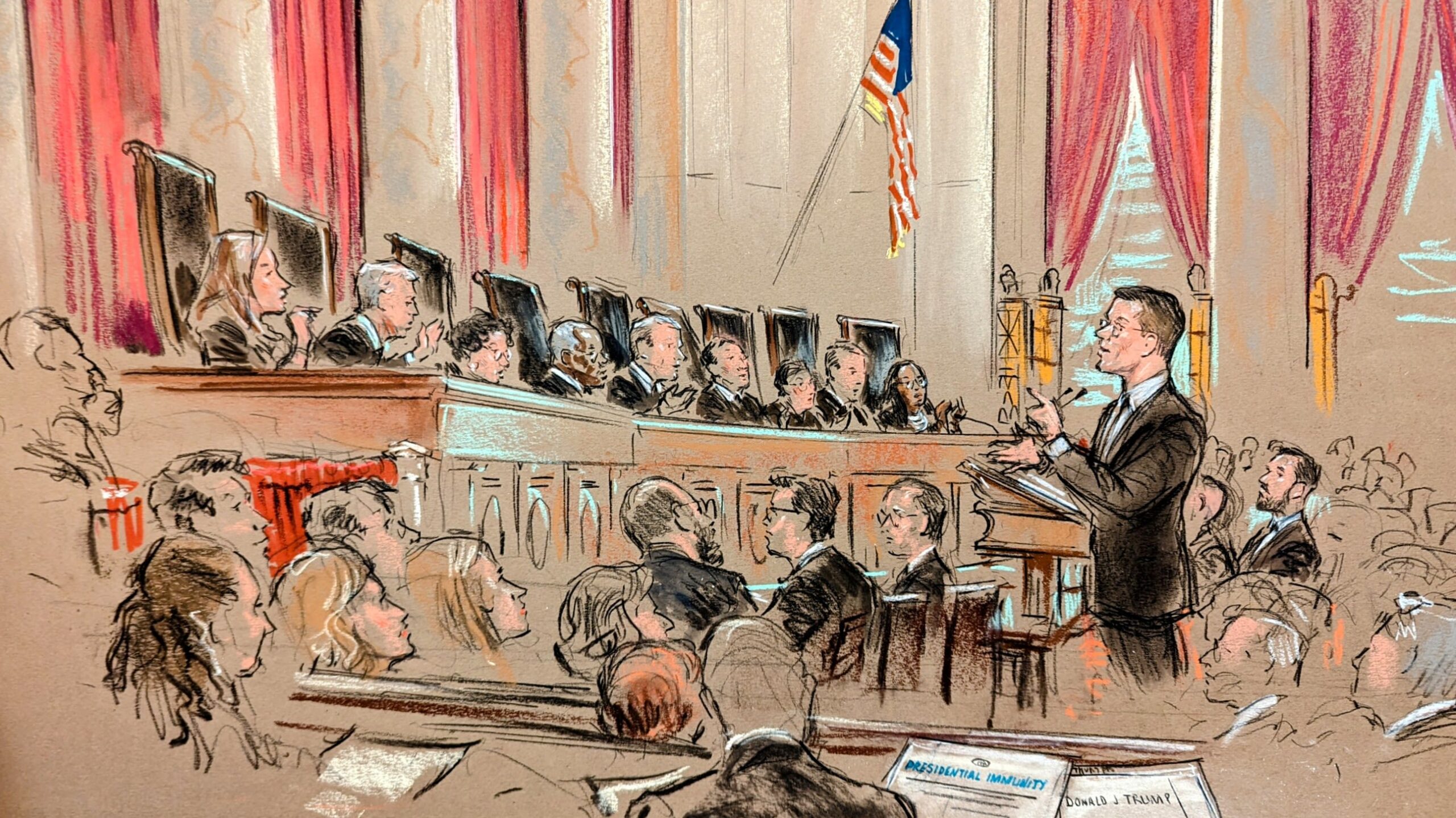The Supreme Court seems poised to reject former President Donald Trump’s sweeping immunity claims and his attempts to halt his federal election subversion case. However, the court also appeared hesitant to grant Special Counsel Jack Smith unrestricted authority to pursue the charges. The court’s decision could significantly impact Trump’s legal future and set precedents for future presidents’ criminal exposure.
Key Takeaways:
Supreme Court Unlikely to Fully Resolve Immunity Question
After nearly three hours of oral arguments, it became increasingly clear that the Supreme Court might not provide a definitive answer on whether Trump can be prosecuted for his efforts to overturn the 2020 election. The court may leave much of this work to lower courts, potentially causing further delays to a trial originally scheduled for March 4.
Trump’s Attorney Concedes Some Acts May Be ‘Private’ and Not Official
In a significant series of concessions, Trump’s attorney, John Sauer, admitted that some of the alleged conduct supporting the criminal charges against the former president were private. This admission indicates a shift from Trump’s previous stance, where he lobbied for absolute immunity.
Justice Barrett Questions Ruling Scope and Timing
Several conservative members of the court, including Justice Amy Coney Barrett, expressed concerns about the scope of Trump’s claim to “absolute” immunity. The court’s decision on how to send the case back to lower courts for further review will likely prove critical.
Liberal Justices Challenge Trump’s Absolute Immunity Claims
The court’s three liberal justices, Sonia Sotomayor, Elena Kagan, and Ketanji Brown Jackson, spent much of the argument questioning the potential implications of Trump’s absolute immunity position. They expressed concerns that such a stance could place presidents above the law.
Conservatives Express Concern Over Potential Illegitimate Criminal Proceedings
Conservative justices expressed concerns about the possibility of ex-presidents being subjected to criminal proceedings for conduct that might ultimately be covered by immunity or some form of presidential protection.
Trump’s Lawyer Asserts Right to Put Forward ‘Fake’ Electors
Highlighting the breadth of Trump’s claims, Sauer stated that his client “absolutely” had a right to put forward Republican electors in states that he lost in 2020, commonly referred to as “fake electors.”
Focus Shifts to Timing for Decision
With the arguments over Trump’s immunity claim concluded, attention now turns to the timing of the court’s decision. Any delay in the court’s decision could play into Trump’s strategy of delay, potentially jeopardizing the likelihood of a trial before the November election.
This story will be updated with additional developments. Contributions to this report were made by CNN’s Katelyn Polantz, Hannah Rabinowitz, and Holmes Lybrand.

